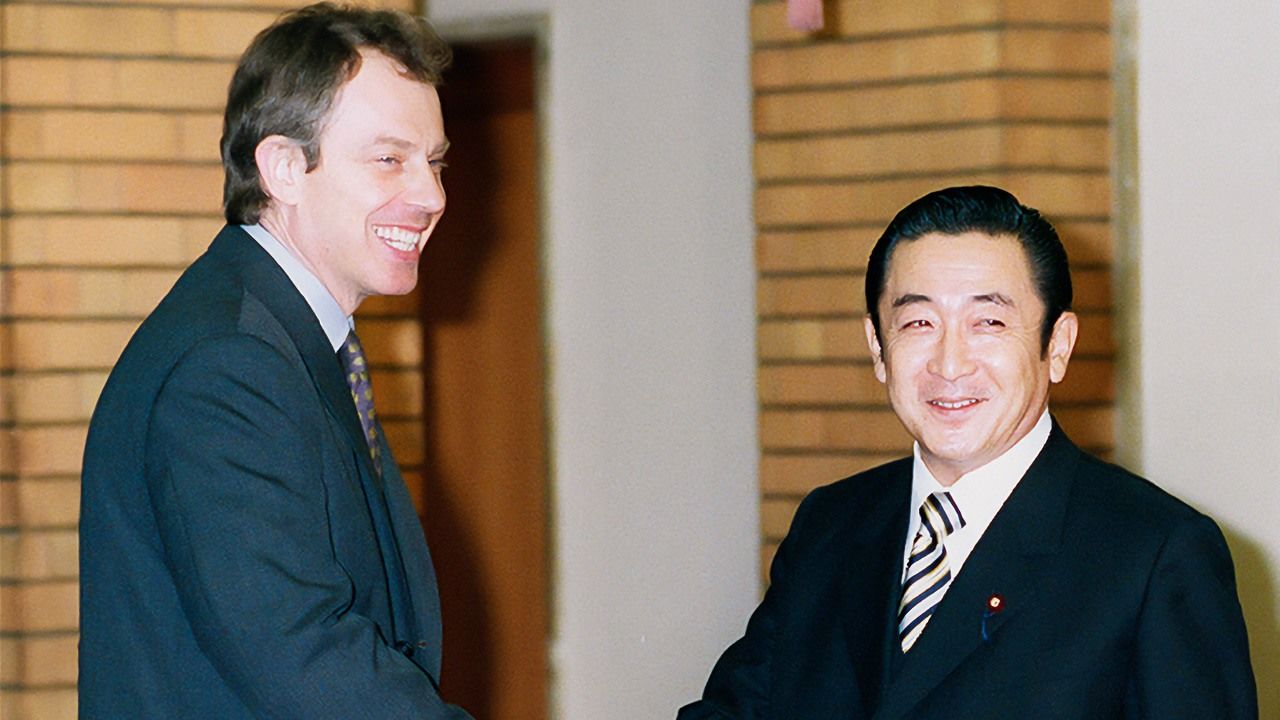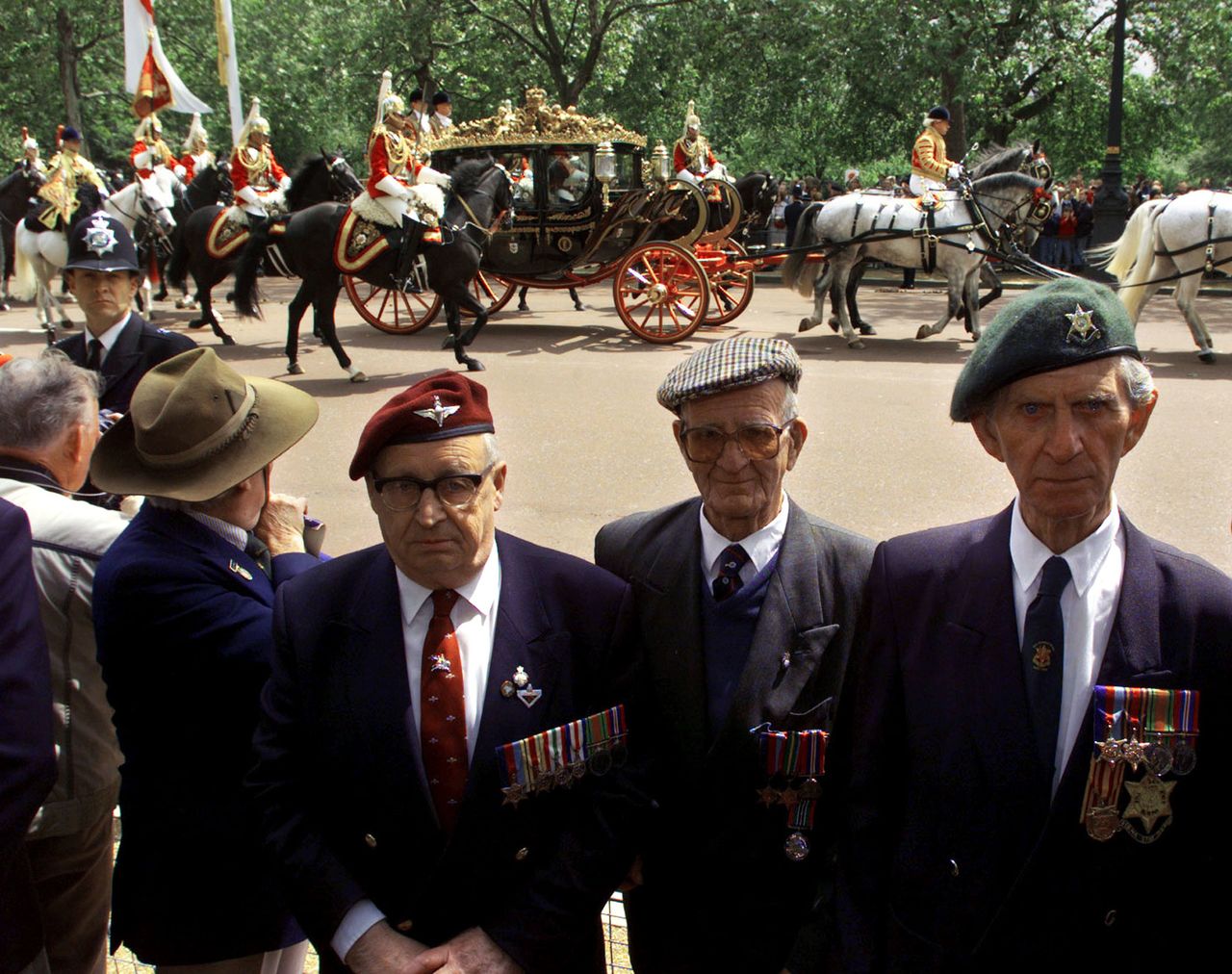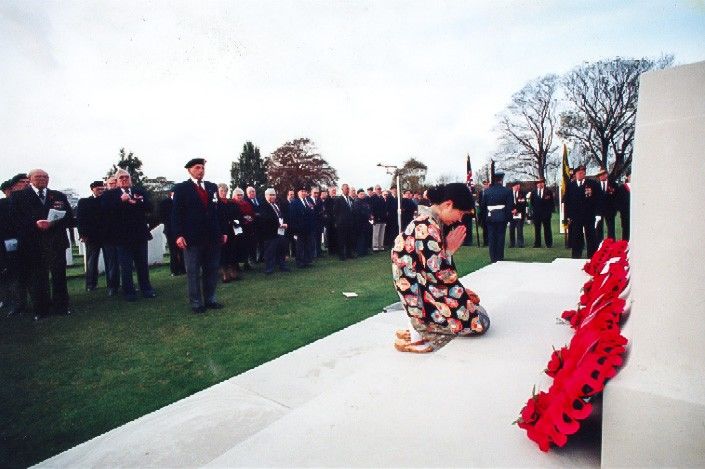
Anglo-Japanese Reconciliation as Precedent for Japan and Korea
Politics History- English
- 日本語
- 简体字
- 繁體字
- Français
- Español
- العربية
- Русский
A Thaw in Japan-Korea Relations
In October 2018, already tense relations between Japan and the Republic of Korea were further exacerbated by a South Korean Supreme Court ruling ordering Japanese companies to directly compensate victims of wartime forced labor. The court required payments of 80 million–150 million won (about ¥8 million–¥15 million) per person to each of 15 victims forced to work in Japanese factories during World War II. Japanese companies refused to comply, citing the Japanese government’s stance that the issue of individual claims related to Japan’s colonial administration of Korea were resolved by an settlement agreement signed in June 1965. This was signed at the same time as the Treaty of Basic Relations that normalized postwar Seoul-Tokyo relations. The victims and their families reacted to this lack of compliance by initiating legal proceedings to forcibly seize the assets of the responsible Japanese companies in South Korea.
The relationship was at a postwar nadir, but ties began to thaw with the inauguration of President Yoon Suk-yeol in May 2022. Seoul has proposed a solution where the Foundation for Victims of Forced Mobilization by Imperial Japan, a public service corporation established in 2014 by the South Korean government, would pay compensation to the victims in lieu of damages awarded by the Supreme Court. The resources for this fund would come from South Korean companies and voluntary Japanese private-sector contributions. This proposal came ahead of President Yoon’s March visit to Japan for a summit meeting with Prime Minister Kishida Fumio, which focused on enhancing Japan-ROK relations at a time of significant regional geopolitical instability.
The Suffering of British POWs at Japanese Hands
The Anglo-Japanese resolution of compensation issues and apologies to British soldiers captured during World War II by the Japanese military in Southeast Asia could be a useful reference point for Japan-ROK reconciliation. British soldiers made up the largest number of POWs captured by Japan among the Western allied forces. Due to the Japanese sacking of British Singapore in 1942, an estimated 50,000 POWs were detained by Japanese forces and forced to endure terrible conditions.
According to the Royal British Legion, approximately one in four British soldiers captured by the Japanese died during internment. This was about five times higher than the rate for British soldiers captured by Nazi Germany. The high attrition rate is due to the Japanese military mobilizing POWs for the construction of the Thai-Burma border railroad. Notoriously known as “Death Railway” due to the large number of casualties suffered by workers, more than 30,000 British POWs worked on the project, with 6,900 soldiers dying.
Although Japan may have treated its POWs relatively well prior to that conflict, this was not the case during the Pacific War. After the war, former POWs and bereaved families accused the Japanese military of gross mistreatment. With such a high number of POWs, this issue was a particular thorn in the side of improved Anglo-Japanese relations and soured British feelings about Japan for decades after the war. Japanese, however, mistakenly attributed the improvement in postwar Japan-UK relations to the sharing of customs surrounding royal families and reciprocal visits by those families. The resolution of the POW issue and civil society activities may be of more importance.
Former POWs Seek Compensation and Apology
Kosuge Nobuko, professor of modern history at Yamanashi Gakuin University and author of several books, including Sengo wakai (Postwar Reconciliation), notes that sentiments toward Japan in Britain were until recently decidedly cool. She notes that Emperor Hirohito (posthumously Shōwa) only received a “silent welcome” when he visited the United Kingdom in 1971. Trees planted by the emperor during his visit were subsequently pulled out, and British aristocrats who had fought against the Japanese in Burma refused to attend a planned welcome dinner. When the emperor died in 1989, the British popular press did not hold back in criticizing his legacy.
Kosuge also notes that “while not well-known in Japan at the time, the grassroots ‘anti-Japanese’ sentiment witnessed in China in recent decades was already a feature of British public attitudes in the 1970s.” In accordance with Article 16 of the San Francisco Peace Treaty’s provisions for POW compensation, surviving British POWs would receive only £76—equivalent to a mere two or three months of wages. This paltry compensation only exacerbated resentment against Japan, given the large number of British POWs and their extensive suffering.
In 1994, seven former prisoners representing British POW groups filed a lawsuit against the Japanese government in the Tokyo District Court. The suit demanded compensation of £13,000 (approximately ¥2.1 million at the time) per person and a formal apology. However, the suit was dismissed, leaving the issue unresolved.
The Japanese government was not indifferent to these considerations. On the fiftieth anniversary of the end of the war in 1995, Prime Minister Murayama Tomiichi apologized for Japan’s aggression and colonial rule in Asian countries during World War II. The Prime Minister also explicitly said that the apology extended to British POWs.
Prime Minister Hashimoto Ryūtarō and British Prime Minister Tony Blair moved in earnest to resolve the issue. Shortly after assuming office for his 10-year tenure as leader, Prime Minister Blair visited Japan in January 1998. Prime Minister Hashimoto conveyed at a summit meeting that the Japanese government was painfully and sincerely sorry for the country’s wartime treatment of POWs. The two countries realized the need to accelerate reconciliation over this issue with the impending first visit of Emperor (now Emperor Emeritus) Akihito to the United Kingdom—and the first by a Japanese emperor since the silent welcome received by his father 27 years prior.
Backs Turned on the Emperor’s Motorcade
Following the January 1998 summit between the two prime ministers, the British tabloid newspaper The Sun carried an article expressing remorse and apology by Prime Minister Hashimoto titled “Britain and Japan must go forward together.” A joint memorial service in Southeast Asia with former Japanese and British servicemen was held, and Tokyo expanded an annual program to bring British POWs and their families to Japan to between 80 and 100 visits a year. However, such overtures were insufficient, and when the emperor visited Britain in May later that year, hundreds of former POWs and supporters made their way to central London to protest his visit. In doing so, they turned their backs on the emperor’s motorcade while some protesters could be seen holding signs reading “Compensation Overdue.”

British POWs protest with their backs to the emperor’s motorcade making its way to Buckingham Palace in May 1998, London. (© Reuters)
At the welcome dinner hosted by Queen Elizabeth, Emperor Akihito said, “At the thought of the scars of war that people bear, our hearts are filled with deep sorrow and pain.” Queen Elizabeth responded by saying “Britain is no fair-weather friend,” but a true friend to Japan. The long-standing ties between the Imperial and Royal Families did help turn things around. Some British began to question whether the protests by the POWs against the emperor were disrespectful given that they were guests of honor invited by the Queen. The British public’s feelings toward Japan appeared to be changing.
In this context, Prime Minister Blair decided to embrace a solution. He felt that it would be wrong to forget the suffering of the POWs, but he also felt that UK-Japan relations should be about more than lingering resentments that would inhibit future relations. Therefore, in 2000, the British government sought a domestic solution by granting former POWs and their bereaved families a special benefit payment of £10,000 (approximately ¥1.6 million) per person, close to the amount of compensation sought in the 1994 Tokyo District Court case. The following year, the Anglo-Japanese Peace Garden was established in the National Memorial Arboretum in Staffordshire, England, and a ceremony was held to unveil the Reconciliation Stone, a monument to peaceful relations between the nations. Thus, a major thorn in the side of the Anglo-Japanese relationship disappeared.
Private-Sector Actions Supporting Settlement
Professor Kosuge also notes several factors behind the success of the Anglo-Japanese reconciliation. Prime Minister Blair held fast on his stance of welcoming the emperor’s visit despite criticism by former POW and veteran groups and the domestic media. Both governments shared a commitment to reconciliation rather than resentment, and this process was supported by civil-society activities initiated by citizens on both sides.
One such activity was to invite former POWs and their families to Japan. Professor Kosuge herself was involved in the Poppy and Cherry Blossom Club, which connected former POWs with Japanese people. Professor Kosuge lived in Cambridge for two years from 1996. During her time there she learned that this area was home to many former POWs who harbored anti-Japanese sentiment. On British Remembrance Day, a ceremony was held at a local cemetery. Kosuge took upon herself to contribute to reconciliation by participating in this event. A local newspaper widely reported that she knelt to pray and offered a bouquet of flowers at the cenotaph while dressed in traditional Japanese garments.

Kosuge Nobuko praying at a memorial ceremony held at a cemetery in Cambridge on Remembrance Day. This photo appeared on the front page of the Cambridge Evening News, a local newspaper, in November 1996. (Courtesy of Kosuge Nobuko).
A cultural exchange event for handmade crafts was also established as a regular event at the hall of a local returned services association. The event featured origami paper cranes, calligraphy, tea ceremony, and other activities. The number of participants gradually increased over the years. Later, a former POW told Professor Kosuge, “No more apologies. Compensation has been settled. What I want from the Japanese people is to learn the history. If that happens, I will gladly make peace.”
Tireless Work Toward Reconciliation
What can Japan and South Korea learn from the above example? Kurosawa Fumitaka, president of the Military History Society of Japan and professor emeritus of Japanese political and diplomatic history at Tokyo Woman’s Christian University, explains:
UK-Japan reconciliation was a success story, firstly, because of the interaction between the private sector and the local embassies. Secondly, there was political will on both sides and concrete steps were taken by the governments of both countries to achieve reconciliation.
In the case of recent developments in Japan-ROK relations, the new South Korean administration has expressed a strong political will to achieve reconciliation in the face of domestic opposition. However, it is currently questionable whether the Kishida administration has responded in a way that will allow Tokyo to take concrete advantage of the opportunity presented by the South Korean government. Therefore, I believe that the future of reconciliation between Japan and South Korea remains in jeopardy. I understand Japan’s point of view, but like a piece of glasswork, reconciliation is fragile. Even if temporary progress is made, it may not last forever. That is why it is essential to make constant efforts to deepen reconciliation.
(Originally published in Japanese. British Prime Minister Tony Blair and Japanese Prime Minister Hashimoto Ryūtarō at a summit meeting in Tokyo in January 1998. © Kyōdō.)